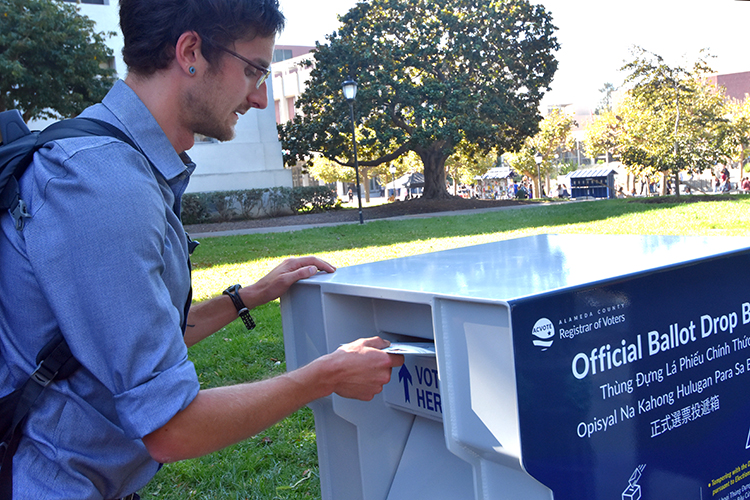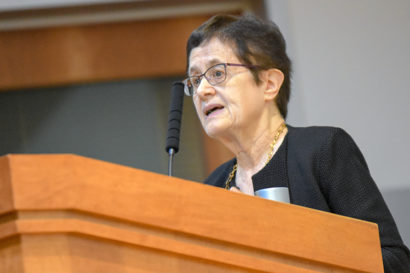Berkeley Talks: Barbara Simons on election hacking and how to avoid it in 2020

“There are a number of myths about elections that we’ve been hearing, saying that they are secure. And I want to shoot down two of those key myths,” says Barbara Simons, board chair of Verified Voting, in a talk called “Can we recover from an attack on our election?” that she gave for the annual Minner Distinguished Lecture in Engineering Ethics on Sept. 18.
The first myth, says Simons, is that because voting machines are never connected to the internet, they can’t be hacked. The second is that there are so many types of voting systems that it’s impossible to rig an election. She explains why both are untrue.

She goes on to discuss how, in 2002, computers were introduced in U.S. elections without an analysis of the risks, how it led to states adopting paperless voting and what we need to do to avoid hacking in our 2020 presidential election.
“We have a solution, so that’s the good news,” says Simons. “We have a solution. You need voter-marked paper ballots. You need a strong chain of custody. And you need to physically sound, manually post-election ballot audits called risk-limiting audits.”
She says it’s too late to have any laws passed in time for the 2020 election. Instead, we need the cooperation of local election officials and a national campaign. And, she says, it’s up to volunteers and staff to help the election officials do risk-limiting audits. “If we can do that, there’s a good chance we can avoid hacking of the 2020 election. But that’s a big ‘if.'”
Simons is the former president of the Association for Computing Machinery (ACM), the nation’s largest educational and scientific computing society. An expert on electronic voting, she is the co-author of Broken Ballots: Will Your Vote Count? and has been on the board of advisers of the U.S. Election Assistance Commission since 2008.
The Minner Distinguished Lecture in Engineering Ethics is an annual lecture supported by the Minner Endowment, a gift from Berkeley Engineering alumnus Warren Minner and his wife, Marjorie.
Watch a video of Simons’ talk on Berkeley Engineering’s website.
